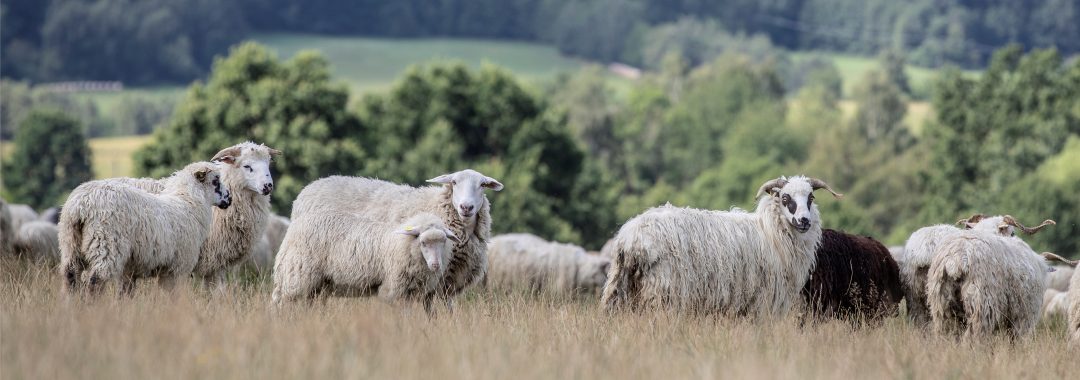Sheep and goats are characterised by their combined performance and represent an important landscape element in some areas of the Czech Republic. Their keeping is an important part of sustainable rural life. There is no specialised dairy in our country that centrally buys and processes sheep or goat milk. Consequently, manufacturing of products, particularly sheep and goat cheese, is largely concentrated in farm dairies, with sales to consumers often made directly from the farm. In this system, it is crucial to closely monitor the health of the animals, as primarily healthy animals produce food that is safe for human consumption (subject, of course, to legislative and technological production requirements) and ensure that farming and production remain economically sustainable.
Health issues on sheep and goat farms were a focus of a five-year research project entitled Bacterial, protozoan and viral zoonotic agents on small ruminant farms, funded by the Ministry of Agriculture. The project has been ongoing since 2019 in cooperation with sheep and goat breeders from the Czech Republic. A total of 40 farms from 11 regions of the Czech Republic participated in the project, where samples were collected for various types of analyses. These analyses primarily focused on diseases potentially transmissible from animals to humans, i.e. zoonoses. Particular attention was paid to bacterial diseases such as caseous lymphadenitis and paratuberculosis, as well as to the hepatitis E virus. The parasitic agents monitored included Giardia, Cryptosporidium and Toxoplasma. The aim of the project, in cooperation with the Institute of Animal Science and the Veterinary University Brno, was to monitor these diseases on farms in greater depth, to develop methods to speed up and refine their diagnosis, and, in the case of bacterial infections, to study the interaction between the pathogen and the host organism.
First of all, the results of our investigation do not reflect the health status of all small ruminant farms in the Czech Republic and, therefore, cannot be generalized. However, we did detect the presence of the diseases or parasites under study in some of the 40 sheep and goat farms. The fewest cases were recorded for viral hepatitis E, with only isolated shedding of viral particles in milk from eight animals from seven farms in the Czech Republic. In 2019, serological screening for bacterial diseases revealed antibodies against the causative agent of paratuberculosis in 16 herds (40%) and against the causative agent of caseous lymphadenitis in 14 herds (35%) of the 40 herds surveyed. The prevalence of Giardia, detected in faecal samples from 21 herds by the commonly used coprological method, was up to 3% in sheep and goats, and prevalence of Cryptosporidium was up to 8%. Antibodies against the parasite Toxoplasma gondii were then detected in all 40 sheep and goat herds.
Is the occurrence of the above-mentioned pathogens and the diseases they cause a significant problem in sheep and goat farms in the Czech Republic? Regarding the potential risk of transmission of these infections to consumers of dairy products, this risk should be eliminated by heat treatment (pasteurisation) of the milk during processing. The overall health of the animals varies between farms and diseases, as indicated by the aforementioned results. In addition to focusing on prevention, breeders should continuously monitor the health status in their herds so that they can take the appropriate steps to prevent pathogens from spreading further among the animals and creating new infection cases, and so that the infection is gradually eliminated from the breeding stock. This can be achieved by employing effective diagnostic methods to detect positive sheep and goats early, understanding how pathogens enter and spread within the herd, and implementing measures to ideally prevent the introduction of diseases altogether. For this purpose, a concise informative publication entitled: "Handbook for sheep and goat farmers: What we should know about caseous lymphadenitis" has been produced to provide farmers with a comprehensive overview of this bacterial disease. The handbook is freely available for download on the websites of the Veterinary Research Institute and the Czech Technology Platform for Agriculture.
The results of this project highlight the topicality of addressing the issue and selecting effective strategies to develop a sustainable approach for managing the health of sheep and goats on farms, while protecting staff and indirectly safeguarding consumers in the Czech Republic.


